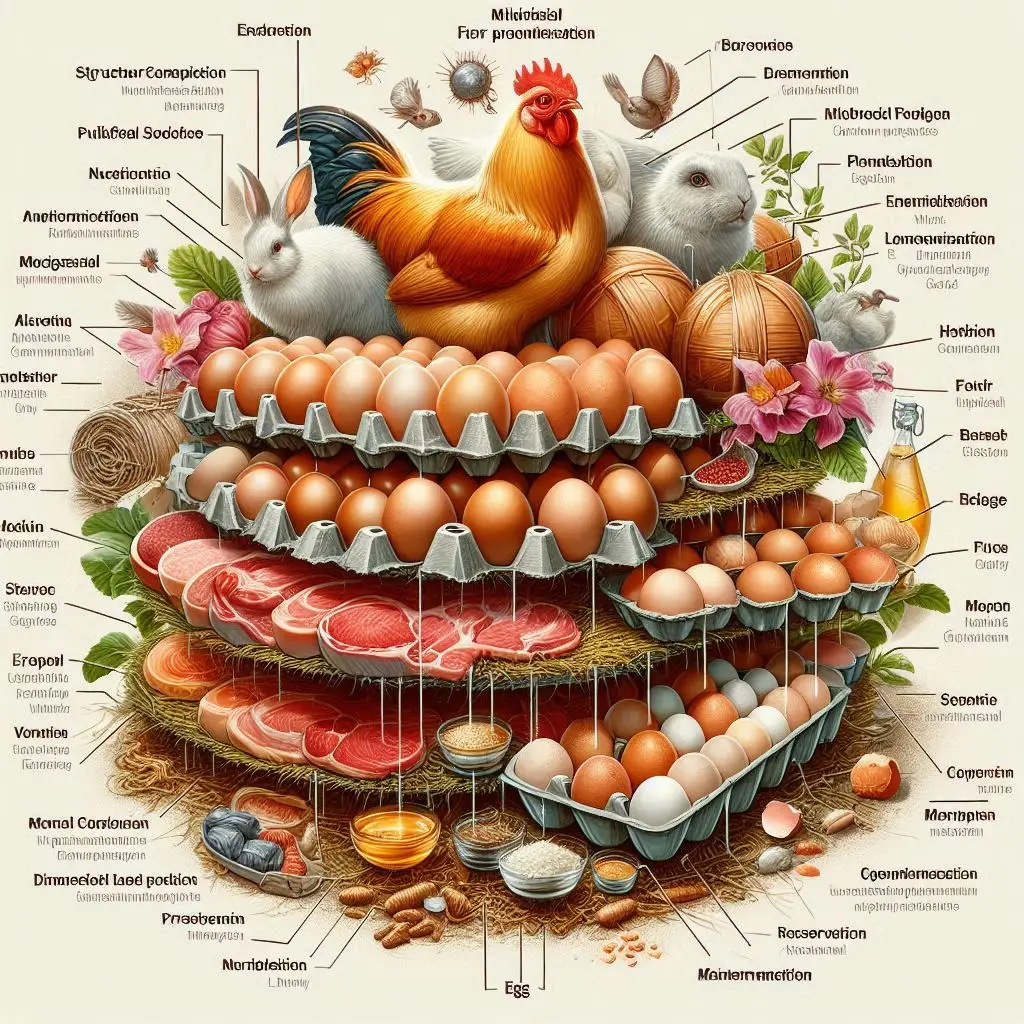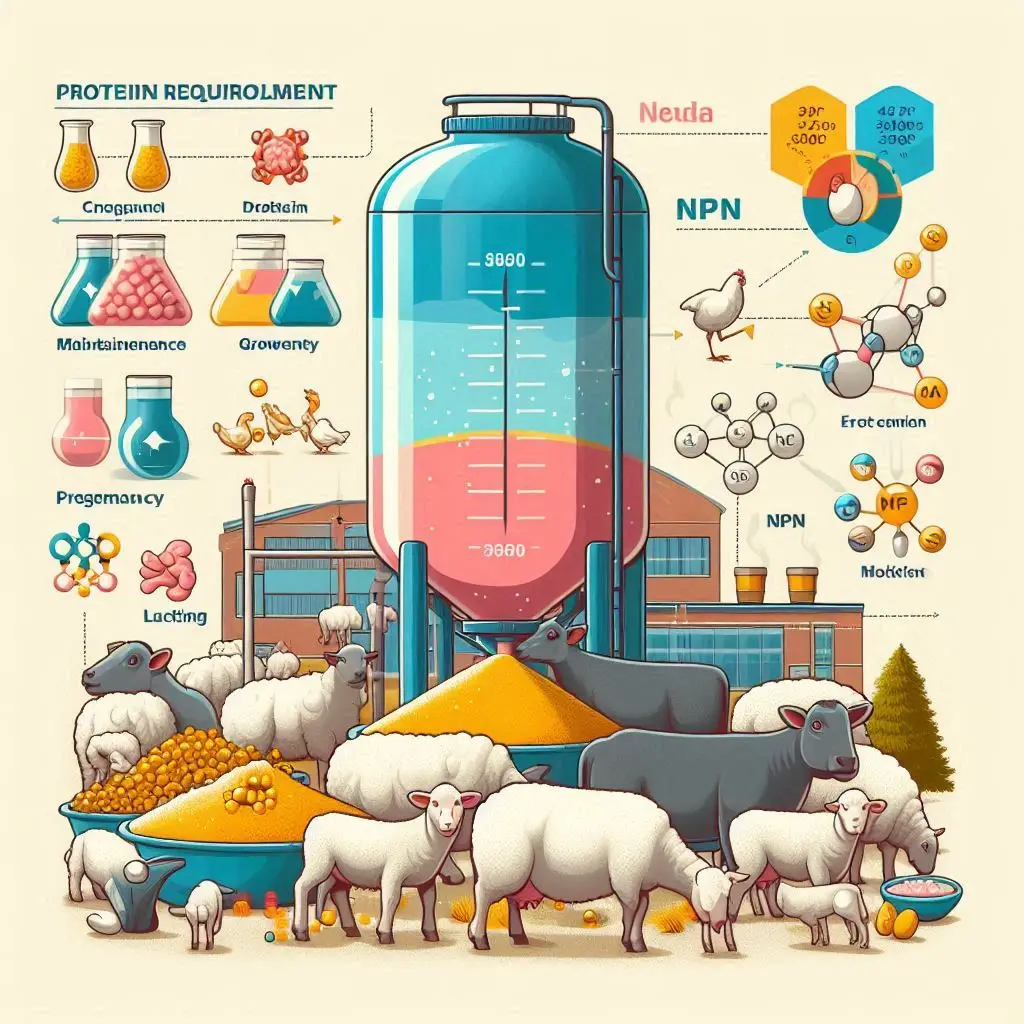Protein Requirements for Egg Production in Livestock

Introduction
Egg production is a vital aspect of poultry farming. It significantly contributes to the global food supply and the economy. Understanding the protein requirements for egg production is crucial for farmers aiming to maximize productivity and maintain the health of their flocks. This article will explore the specific protein needs of laying hens, the role of amino acids, and how nutrition affects egg quality.
Importance of Protein in Poultry Diets
Protein plays a critical role in the overall health and productivity of laying hens. It is essential for several reasons:
- Muscle Development: Protein aids in building muscle mass, which is necessary for maintaining body weight.
- Egg Production: Hens require adequate protein to produce eggs. Insufficient protein can lead to decreased egg production and poor egg quality.
- Feather Growth: Chickens need protein to grow feathers, which are primarily made of keratin, a protein.
Key Nutrients in Protein
The primary components of protein are amino acids. These are the building blocks that support various bodily functions in chickens. The two most important amino acids for laying hens are:
- Lysine: Essential for protein synthesis and hormone production.
- Methionine: Important for metabolism and growth.
Recommended Protein Levels
The recommended levels of protein in the diets of laying hens vary based on their age and production stage:
- Starter Phase (0-6 weeks): 20% crude protein
- Grower Phase (6-12 weeks): 17.5% crude protein
- Pre-Layer Phase (15 weeks to first egg): 16.5% crude protein
- Layer Phase (after first egg): 16% to 20% crude protein, depending on peak production needs.
Factors Influencing Protein Requirements
Several factors can influence how much protein a hen needs:
- Age: Younger birds typically require more protein for growth.
- Production Stage: Hens in peak production periods need higher protein levels.
- Breed: Different breeds have varying nutritional requirements.
- Environmental Conditions: Temperature and housing can affect feed intake and nutrient absorption.
Balancing Amino Acids
While total protein content is important, balancing specific amino acids is crucial for optimizing egg production:
- The digestible lysine requirement should be between 0.60% to 0.65% in breeder feed.
- The ratio of digestible methionine plus cysteine to lysine should be maintained at about 90% to 95%.
Effects of Amino Acid Deficiency
A deficiency in essential amino acids can lead to:
- Reduced egg weight
- Lower egg production rates
- Poor feather quality
Nutritional Impact on Egg Quality
The quality of eggs produced by laying hens is directly related to their diet, particularly their protein intake. Key aspects include:
- Egg Size: Higher dietary protein often correlates with larger eggs.
- Eggshell Quality: Adequate calcium, along with sufficient protein, helps maintain strong eggshells.
- Yolk Quality: Protein influences yolk color and nutritional content.
Key Nutrients Beyond Protein
In addition to protein, several other nutrients are essential for optimal egg production:
- Calcium: Vital for strong eggshells; recommended levels are around 3% to 4% in layer diets.
- Vitamin D3: Supports calcium absorption; recommended at 3500 to 5000 IU/kg feed.
- Trace Minerals: Zinc, manganese, and copper play roles in overall health and egg quality.
Feeding Strategies for Optimal Production
To meet the protein requirements effectively, consider these feeding strategies:
Formulating Diets
- Use high-quality ingredients that provide essential amino acids.
- Regularly analyze feed composition to ensure nutritional adequacy.
- Adjust diets based on the age and production phase of the hens.
Monitoring Feed Intake
Keep track of how much feed each hen consumes. Changes in feed intake can indicate health issues or environmental stressors that may affect nutrient absorption.
Seasonal Adjustments
Adjust feeding practices based on seasonal changes that might influence temperature and hen behavior.
Conclusion
Understanding the protein requirements for egg production is vital for successful poultry farming. By ensuring that hens receive adequate protein along with balanced amino acids, farmers can enhance egg quality and production rates. Regular monitoring and adjustments based on age, breed, and environmental conditions will lead to healthier flocks and better yields.
For more pearls of Vets Wisdom:
https://wiseias.com/partitioning-of-food-energy-within-animals/






Responses